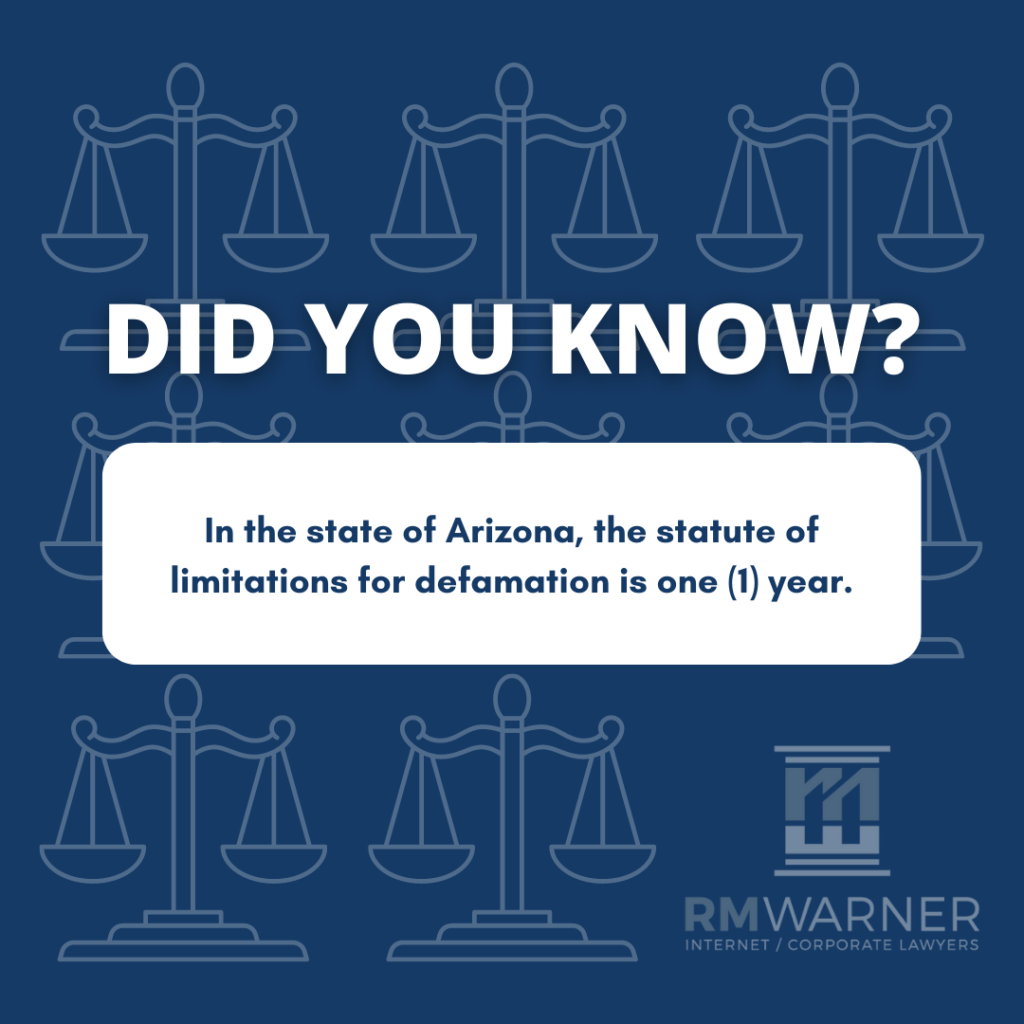The Statute of Limitations for Defamation Action
The Statute of Limitations for Defamation Action

When someone says or publishes false or derogatory statements about you, your reputation may suffer. This can lead to loss of opportunities or business. If you’re looking to seek legal action against a perpetrator, it’s crucial to speak with an experienced defamation attorney and file your case as soon as possible. Timely action makes it easier for you to collect evidence and prove your case in court. In this article, we discuss the statute of limitations for defamation cases and look at the exceptions of this statute.
What is the Statute of Limitations?

The statute of limitations is a legislative act that sets the time frame within which parties can initiate a valid legal proceeding. Depending on the severity of the offense committed, this time often begins from the moment the perpetrator commits the offense and ends at a specific time. The primary purpose of the statute of limitations is to protect defendants from having to fight charges for events that occurred so far in the past that they cannot defend themselves effectively.
What is the Statute of Limitations for Defamation Cases?
The statute of limitations for defamation cases is the time frame within which a plaintiff may file a defamation case. There is no common statute of limitations in the US for defamation cases, so the time frame differs from state to state. View your state’s statute of limitations for defamation now.
The statute of limitations for defamation cases generally ranges from one to three years, with three years being the maximum period. Most states limit their statute of limitations to one year to ensure the resources necessary for the case are still available. Such limitations encourage plaintiffs to seek legal action in a timely manner. Consult a defamation attorney if you have questions about the statute of limitations in your case.
Exceptions to the Statute of Limitations for Defamation Cases
Every state has specific circumstances under which the statute of limitations can be suspended beyond the legislated time frame. These exceptions can include:
1. The Discovery Rule
The discovery rule is an exception to the statute of limitations in many states. It argues that the statute of limitations clock only starts to run after the plaintiff learns of the defamatory statement. It can also refer to the time the plaintiff could have learned about the defamatory comments with reasonable diligence. The discovery rule exception doesn‘t apply to online defamation cases or publications that are easily accessible to the general public.
2. The Perpetrator Is Unknown
In some states, the statute of limitations only begins after the plaintiff identifies the perpetrator who made the defaming statements. You can still file a claim if a perpetrator’s identity is unknown until after the statute of limitations has lapsed. Perpetrators often purposefully conceal their identities to avoid being held accountable.
3. The Victim Is a Minor
In some states, the statute of limitations clock doesn’t begin until the victim turns 18. This exception also applies if the victim is considered legally incapacitated when the claims were made. Victims can file a defamation case against a perpetrator when they become adults or when the state declares them legally competent.
4. The Perpetrator Leaves the State
If a perpetrator leaves the state before the victim files a lawsuit, the statute of limitations may not apply. This means the time they’re away may not be counted towards the filing period. Victims can file a case once the perpetrator returns to the state.
Are You Looking for a Defamation Attorney?
If you are a victim of defamation and want to seek legal action, contact us at RM Warner Law. Our defamation attorneys have extensive experience successfully arguing defamation cases. We will guide you through filing your case and help collect evidence to prove your claim in court.
Call us at 1-866-570-8585 or complete our online form to schedule an appointment with one of our defamation attorneys.
Similar like this
You also might be interested in
Legal Strategies for Protecting Your E-commerce Business’s Intellectual Property
Your e-commerce business is more than just products and services [...]
The Importance of an E-commerce Lawyer for Online Businesses
Running an online business is exciting but comes with many [...]
The Role of Terms and Conditions in E-commerce: Why You Need a Lawyer
Strong terms and conditions aren’t just formalities—they’re your shield against [...]
What is The Statute of Limitations in My State? – State Defamation Law Chart
The statute of limitations sets the time frame within which [...]





